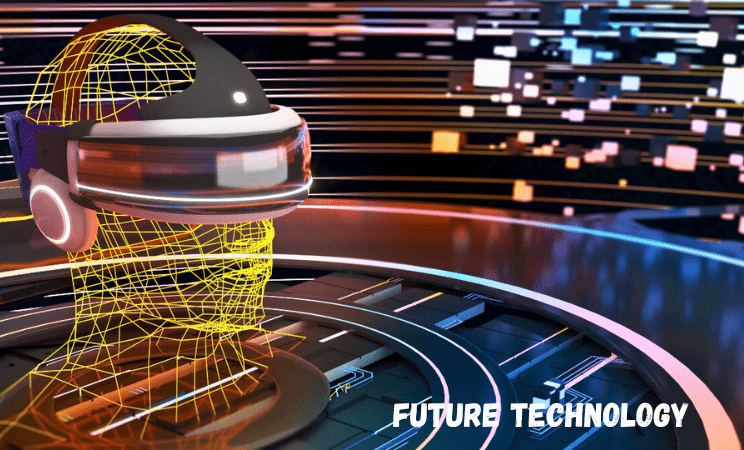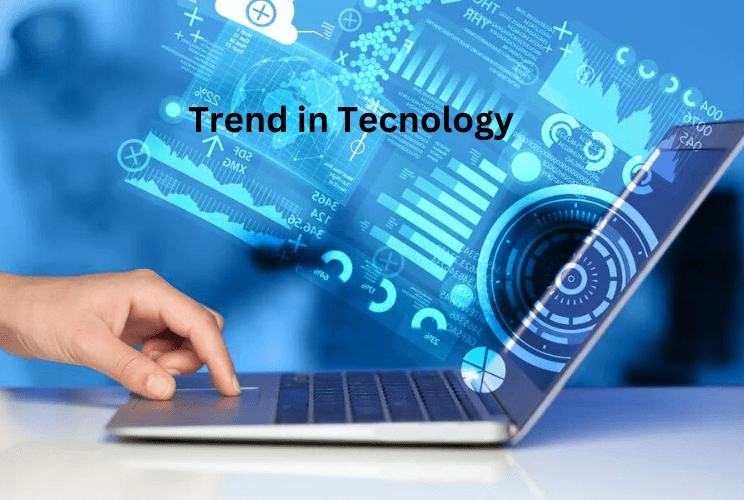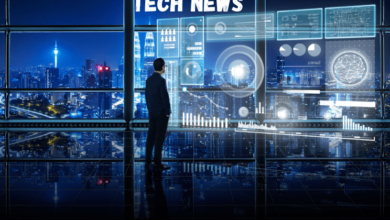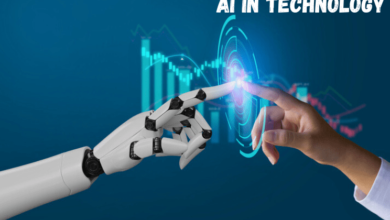Future technology diving into what’s on the horizon?

Future technology: As we dive into the fascinating realm of future technology, we find ourselves standing on the precipice of innovation and discovery. The world of technology is evolving at an unprecedented pace, and the possibilities seem limitless. In this comprehensive article, we will explore the most intriguing advancements on the horizon, delving into the intricate details and implications of these cutting-edge technologies
The Rapid Pace of Technological Advancements
In today’s fast-paced world, technology is advancing at a pace that is both exhilarating and challenging to keep up with. Every day, breakthroughs in science and engineering are pushing the boundaries of what we thought possible. From artificial intelligence to quantum computing, the future is brimming with exciting possibilities.
The Intriguing World of Future Technology
The world of future technology is a captivating one. It’s a realm where science fiction meets reality, where imagination merges with innovation. In this article, we’ll embark on a journey through the uncharted territories of emerging technologies and futuristic innovations, uncovering the transformative power they hold.
Artificial Intelligence (AI)
Artificial intelligence, often abbreviated as AI, has emerged as a game-changer in numerous fields. This section will explore AI’s role in shaping the future, the intricacies of machine learning and deep learning, its applications in healthcare and diagnostics, and the ethical considerations that accompany its development.
Quantum Computing
Based on the mind-boggling principles of quantum mechanics, promises to revolutionise computation. We’ll delve into the basics of quantum mechanics, the fundamental differences between quantum and classical computers, potential applications of quantum computing, and the formidable challenges it poses.
Internet of Things (IoT)
The Internet of Things, or IoT, is connecting our world like never before. In this segment, we’ll discuss IoT’s impact on daily life, its role in smart homes and agriculture, and the pressing security concerns associated with its proliferation.
5G Technology
Mobile networks have evolved to the 5G era. We’ll explore the need for speed and low latency in 5G, its applications beyond smartphones, and the journey toward widespread adoption.
Biotechnology and Genetic Engineering
Biotechnology and genetic engineering have opened doors to incredible possibilities. In this section, we’ll look at the revolutionary CRISPR-Cas9 gene-editing technology, biotech’s role in medicine, the ethical dilemmas it raises, and how biotechnology is contributing to sustainability.
Augmented Reality (AR) and Virtual Reality (VR)
Augmented reality and virtual reality offer immersive experiences. We’ll differentiate between AR and VR, explore their applications in gaming, education, and training, and speculate on their future potentials.
Space Exploration and Colonisation
Space exploration is undergoing a renaissance, driven by private companies and ambitious missions. This section will cover the rise of private space companies, human missions to Mars, the concept of space mining, and the tantalising future of interstellar travel.
Green Technology and Renewable Energy
Sustainability is a pressing global concern, and green technology is leading the way. We’ll investigate advancements in solar energy, wind power, and hydropower, as well as sustainable transportation solutions, all contributing to a greener planet.
Biometrics and Identity Verification
Biometrics is redefining identity verification. We’ll explore various biometric authentication methods, their applications in banking and finance, and the critical issues surrounding privacy and security.
Autonomous Vehicles and AI-driven Transportation
The automotive industry is shifting towards autonomy. We’ll analyse the safety aspects of self-driving cars, the role of autonomous drones in delivery services, the concept of smart cities, and how AI is transforming transportation.
Privacy and Data Security
With the proliferation of technology comes the need for data privacy and security. We’ll examine data privacy regulations, methods to protect personal data, the delicate balance between privacy and convenience, and the vital role of cybersecurity.
Technological Unemployment
Automation and AI are altering the job landscape. We’ll discuss the potential job displacement, the necessity for workforce reskilling, the concept of guaranteed basic income, and how individuals can prepare for the future job market.
Ethical AI and Bias
The development of AI brings ethical concerns into sharp focus. We’ll address bias in AI algorithms, the importance of diversity in tech, strategies to build fair and transparent AI, and the impact of AI on decision-making processes.
Environmental Impact of Technology
The tech industry has a significant environmental footprint. We’ll examine the issue of electronic waste and the importance of electronics recycling, sustainable manufacturing practices, and efforts to reduce the carbon footprint of the tech sector.
Digital Divide and Accessibility
In an increasingly digital world, accessibility is paramount. We’ll explore efforts to bridge the digital divide, expand technology access in developing nations, the concept of inclusive design, and how technology can empower individuals with disabilities.
The Future of Wearable Tech
Our lives are becoming increasingly reliant on wearable technology. We’ll investigate health monitoring wearables, the intersection of smart clothing and fashion, the possibilities of implantable technology, and the intriguing world of biohacking.
Brain-Computer Interfaces (BCIs)
BCIs are pushing the boundaries of human-computer interaction. We’ll unlock the potential of BCIs, their applications in medicine and rehabilitation, ethical concerns surrounding brain-computer interfaces, and what the future holds in this domain.
Nanotechnology and Nanomedicine
Nanotechnology operates at the nano-scale, opening up new vistas. We’ll explore nanotech’s role in medicine and drug delivery, its applications in environmental preservation, and the challenges faced in its development.
Holography and 3D Printing
Holography and 3D printing are reshaping how we perceive reality. We’ll dive into holographic displays and communication, the transformative power of 3D printing in manufacturing, bioprinting for organ transplants, and the creative potential of this technology.
The Role of Government and Regulation
As technology advances, the role of government in regulation becomes crucial. We’ll discuss the need for technology regulation and oversight, the importance of global collaboration in tech governance, the balancing act between innovation and safety, and the necessity for informed policymaking.
Conclusion
The future of technology holds immense promise and potential, but it also presents profound challenges. The rapid evolution of AI, quantum computing, IoT, and other emerging technologies offers exciting opportunities for innovation and progress. However, we must navigate ethical and societal considerations, including privacy, employment, and environmental impact, with utmost care. As we move forward, it’s crucial for us to prioritise responsible development and regulation of these technologies. By doing so, we can shape a future where technology enhances our lives, fosters inclusivity, and contributes to a sustainable and prosperous world for all.
FAQs
What is quantum computing?
Quantum computing leverages quantum bits (qubits) to perform complex calculations at incredible speeds.
How does AI impact daily life?
AI enhances daily life through personalization, automation, and improved decision-making in various applications.
What are the key challenges in IoT?
Security concerns, data privacy, and scalability are among the primary challenges in the Internet of Things.
What is the digital divide?
The digital divide refers to the gap in technology access and skills between different demographics.
Why is ethical AI important?
Ethical AI ensures fairness, transparency, and responsible use of artificial intelligence technologies.




